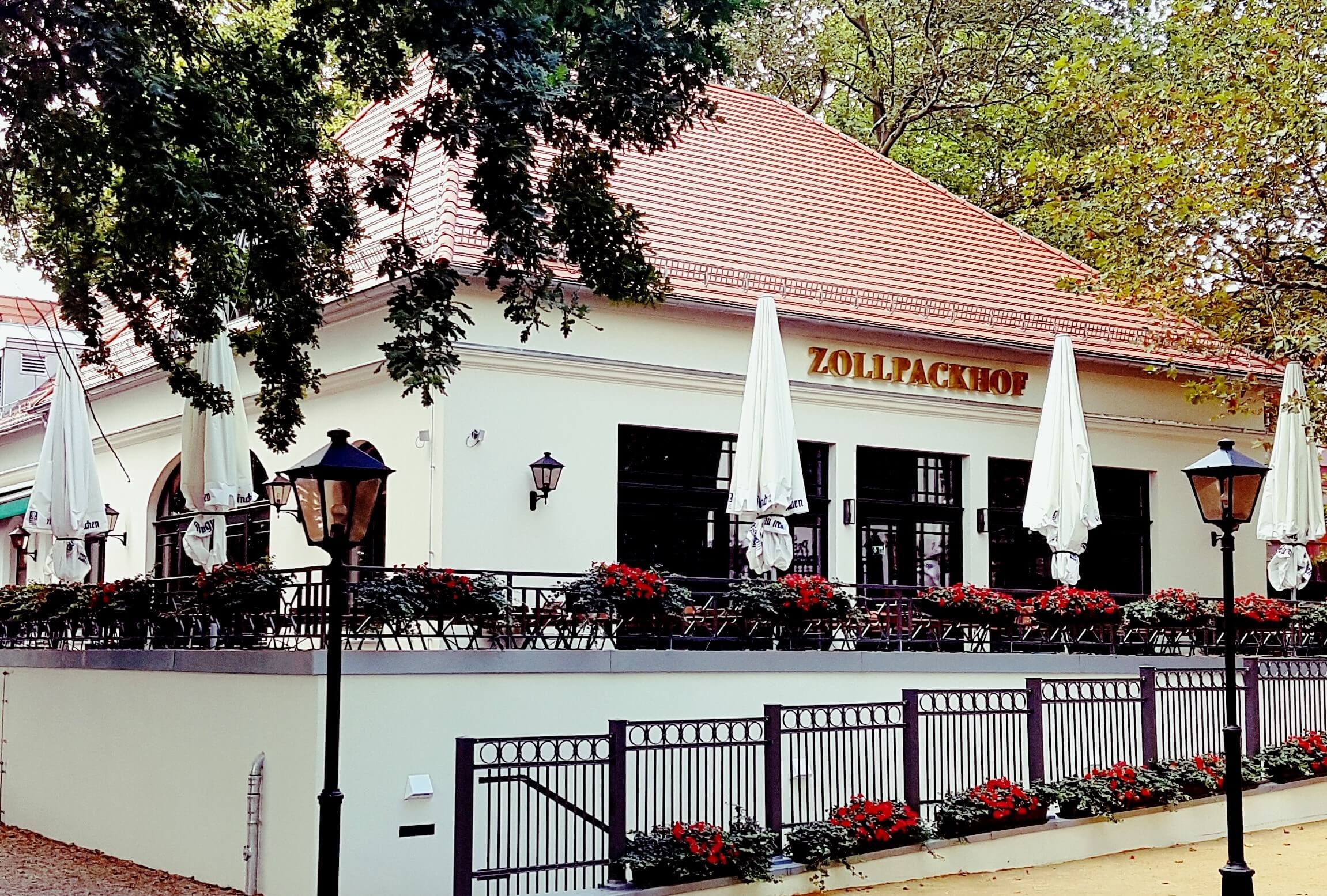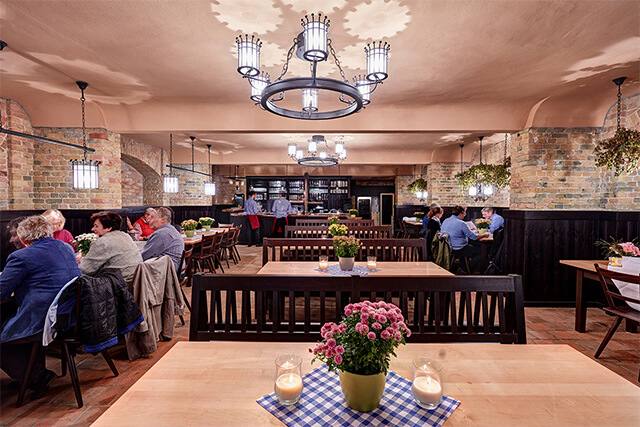
Over 300 years of tradition
The Zollpackhof, opposite the Federal Chancellery, was Berlin's first restaurant for outings in the 1700s.
It still caters for the physical well-being of its guests today.
The Zollpackhof, opposite the Federal Chancellery, was already Berlin's first excursion restaurant in the 1700s and still caters for the physical well-being of its guests today. With the takeover in 2005, the original Berlin restaurateur Benjamin Groenewold gave Berlin back a piece of tradition.
After a long renovation phase between 2014 and 2016, in cooperation with the Augustiner Brewery from Munich, the historic complex shines in new splendour. The overall architectural concept was based on old building plans from the turn of the century.

The Zollpackhof, opposite the Federal Chancellery, was Berlin's first restaurant for outings in the 1700s.
It still caters for the physical well-being of its guests today.
With the takeover, restaurateur Benjamin Groenewold gave a piece of tradition back to the capital in 2005.
After the renovation phase from 2014 to 2016 based on old building plans from the turn of the century and together with the Augustiner Brewery, the historic complex shines in new splendour.

Find out more about what makes us tick here.
It all began on 8 November 1685 with the "Edict of Potsdam". The Elector Frederick William made it possible for the Huguenots, who had been cruelly persecuted in France, to start a new life in Prussia. Incentives to settle in Prussia were religious tolerance, financial start-up aid, a 15-year tax exemption and complete integration into society. Migration was attractive to both sides, as many immigrants were highly skilled and brought with them esprit and many culinary ideas. The only problem was the lack of space for the approximately 20,000 Protestant refugees from France. The "Moabiter Werder", an area of heath, wet meadows and many trees on the north bank of the Spree and at that time still just outside Berlin, was just right.
One of the first settlers was Monsieur Menard. In 1698, the Elector Frederick III gave Menard a hill for growing grapes, which was located at the mouth of the Niederschönhausen ditch on the Spree. But the vineyard alone did not satisfy Menard, so he founded an inn with a garden. The "Menardie" was soon a popular destination for the Huguenots in Berlin and for Berlin's fine society. Menard then laid the foundation for what is now more than 300 years of gastronomic history on the site where the "Zollpackhof" restaurant is located today.
The history of the site is as varied as the history of Prussia: in 1717, a powder factory was built north of the street "Alt Moabit", which was moved to Spandau 120 years later for safety reasons. In the meantime, a royal wood yard was located on the former "powder meadows". From 1811 to 1855 "Tichys Badeanstalt" (Tichy's baths), an open-air river bath for Berliners, was built on the same site. In 1840 Berlin's first swimming club was founded here. When Lehrter Bahnhof opened nearby in 1871, the baths had to make way for Berlin's first railway connection to Lehrte in Hanover. Space was to be made here for a new packing yard, as well as for tax and customs buildings. One of these buildings was called the "Spiritus-Hof" and was later used as a casino. Until 1920, the area was still a popular destination for excursions.
After the Second World War, both the Lehrter Bahnhof and the surroundings of the Packhof area were largely destroyed, only the casino remained largely undamaged. The ruins of the station were finally demolished after the end of the war, but the Packhof site continued to belong to the customs administration. A few forwarding companies settled on the site, but otherwise the dreamlike grounds slumbered until the fall of the Wall.
After the fall of the Wall, reunification and the government's move to Berlin, the traditional site on the Spree experienced an upswing. With centuries-old trees, direct access to the riverside promenade, a view of the Chancellery and the Swiss Embassy, the "Zollpackhof" has a new charm. The restaurant is located in the new heart of the city and some of Berlin's most exciting sights are only a stone's throw away, such as the Federal Chancellery, Potsdamer Platz, Brandenburg Gate, Reichstag, Victory Column, the Tiergarten or Bellevue Palace.
In cooperation with the Augustiner Brewery from Munich, we have created a traditional pub with one of the most beautiful beer gardens in the city under old, shady trees. Inside, our guests can expect hearty Bavarian-Austrian cuisine. A modern, cosy pub ambience with a round fireplace and dominating large chandeliers invites you to linger.